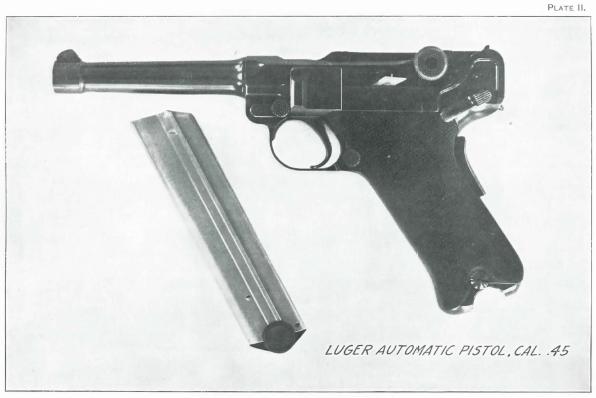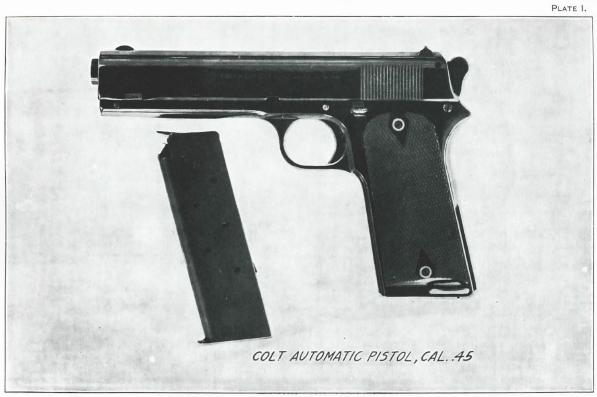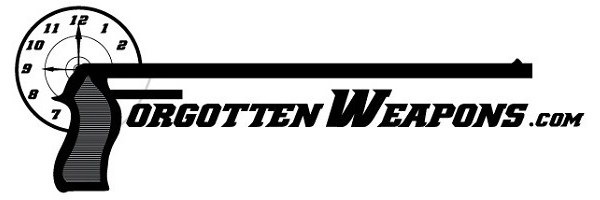When the US began its engagement in the Philippines at the close of the 19th century, the standard service sidearm was a .38 caliber double-action revolver. This was found to be insufficient for serious combat use, and a program was instituted to find a .45 caliber replacement handgun.

A small group of officers convened in January and March of 1907 to conduct trials on the pistol designs that had been submitted to the Army, including several guns that would become iconic. The automatic pistols tested included the .45-caliber Luger, Colt, Savage, Bergmann, Knoble, and Merill-White. There were also three revolvers present, Colt and Smith & Wesson double actions and a Webley-Fosbery automatic revolver.
The guns were put through firing tests including dust exposure and rusting. And as a side note, I should point out that the took the rust test pretty seriously:
17. Rust. The mechanism will be thoroughly cleansed of grease
by boiling in a solution of soda, the ends of the barrel tightly corked,
and the pistol then placed in a saturated solution of sal-ammoniac
for five minutes.
The Colt and Savage designs performed well, as did both American revolvers. The Luger proved to have reliability issues with commercial ammunition, and the testing commission was concerned that the powder required by Luger was not available in the US. My pet favorite the Bergmann was unfortunately dropped from testing when its hammer mechanism produced consistent light hits and failed to fire. The Knoble was deemed a crude piece of junk and not tested, and the Merill-White was too unreliable to warrant further consideration. The Webley-Fosbery was judged to be unnecessarily complicated without any significant advantages.
The outcome of the tests was twofold. The officers understood that the automatic pistol was clearly going to become the standard sidearm in the future, but they also believed that proper development and selection of an automatic would take several more years. So they recommended that the Army purchase enough Savage and Colt automatics to equip several units and continue testing them. In the meantime, they also recommended replacing the current .38 with the Colt .45 revolver as a stopgap if any significant further combat was anticipated in the Philippines (in a show of frugality not seen by recent government agencies, they noted that the $40,000 expense of such a replacement was only worthwhile if significant further conflict was expected in the short term). The ultimate winner, of course, would prove to be the Colt automatic.
 You can download a copy of the trials report (including photos of each gun tested) here:
You can download a copy of the trials report (including photos of each gun tested) here:


Excellent!!! Thank You!!!
And His Majesty “1911” was born !!! 🙂
Thank you so much! For years, I’ve wondered what the other pistols were and what they looked like. I’d seen the Luger and the Savage, but not the others.
Again, thank you.
Where can I find the hard copy of the report?
Do any pictures exist of the Bergmann, Knoble, and Merill-White pistols used in this trial?